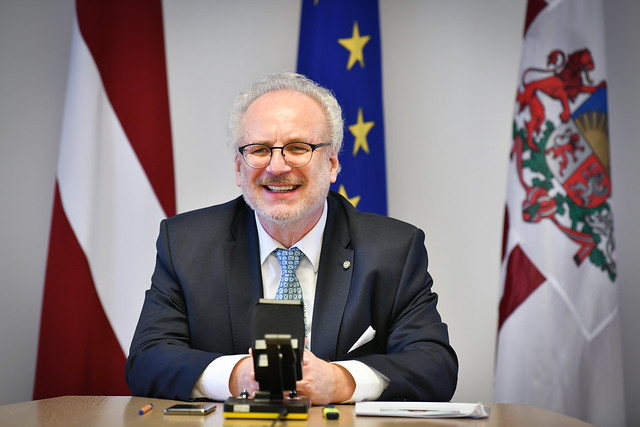‘As we are gradually digitalising our country’s life, your institution will play a strategic role in these future processes. Like environmental protection, data protection used to be perceived as something of minor importance, however, the realisation of its importance is becoming increasingly clear to the public,’ underlined Egils Levits.
President of Latvia underlined that as personal profiles and data are becoming more accessible in the digital domain, risks of possible manipulation of personal opinion or behaviour are high. This extends to how people vote, too. ‘This is not compatible with democratic principles. It threatens personal freedom. Data protection therefore should be viewed in the context of much broader digital policy of a democracy,’ said President Levits.
Jekaterina Macuka underlined that one of the main responsibilities of Data State Inspectorate is raising people’s awareness about the value of data. That is why Inspectorate recently implemented a campaign focusing on this issue. ‘People have started to realise the value of their data more clearly. But we need to keep reminding and informing people that, for example, when they agree to volunteer too much personal information to big corporations or other users on the social media, they are putting themselves at risk.’
President of Latvia stressed that we need a comprehensive national digital policy instead of a description of digitalisation steps in each sector. An integrated vision based on fundamental principles that apply to various scenarios and form a cohesive image of Latvia’s digital future. A plan, which considers ethical, democratic and privacy implications.
President Levits and Director Macuka also talked about amendments in the national legal framework for data protection. Jekaterina Macuka expressed the need for public debate on website responsibility and prevention of abuse and penalties for data leakage. An emerging concern during the pandemic is a growing trend of state and local authorities requesting too much personal information, which in many cases is unnecessary. StopCOVID app, on the other hand, is one of the positive examples of public and private sector collaboration in achieving a healthy balance between data collection needs and protection of personal data.
Egils Levits and Jekaterina Macuka also discussed Latvia’s national position for the EU debate on new single digital market initiatives.





